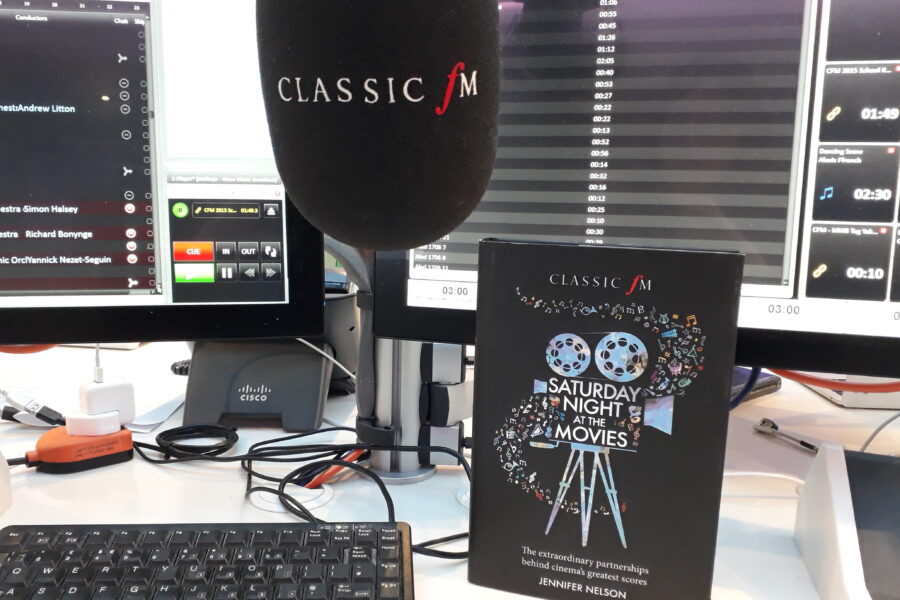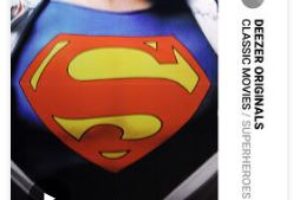I’ve said it before and I’ll say it again: I love producing Saturday Night at the Movies on Classic FM. I’ve been lucky enough to make radio shows on a variety of stations for well over a decade now, and if I had to compile a list of my favourite programmes to work on, I guarantee SNATM (as it’s known to its nearest and dearest who are into the whole brevity thing) would make an appearance.
I have not compiled such a list, but I have been involved in creating a far more important Top Ten: the best film scores of 2018. Every December, Andrew Collins and I (AKA the Saturday Night at the Movies team) politely but firmly state our cases for our favourite scores of the past 12 months, and eventually we whittle these down to a final ten. We try to include box office hits alongside smaller releases, but our most important criteria is about the impact the music has on the film, and whether – or rather, how – the score enhances the viewing experience.
Andrew has just revealed the Top Ten in our End of Year show, along with our top 5 TV scores and a brief tribute to those from the film world we’ve lost in 2018, including Stan Lee and William Goldman. If you missed it, listen again here for the next 7 days or keep on reading:
10) Happy New Year, Colin Burstead by Clint Mansell
The film and score were among my London Film Festival highlights, and I’ve since taken my parents to a special screening of the film at their local cinema and possibly one of the finest cinemas in the land, the Plaza in Truro, where director Ben Wheatley took part in a very warm – and at times frank – Q&A afterwards. When I tried to grill him about the music for his next project, a re-make of Rebecca, he replied with a firm ‘no comment’. I love how Mansell’s Elizabethan-sounding music should feel totally incongruous to the modern-day setting, but instead it creates a feeling of unease alongside a sense of pageantry at the new year’s celebrations.
9) Christopher Robin by Geoff Zanelli with Jon Brion
This is a really rich score – at times playful, other times moving – and it serves as a strong stand-alone listen. Johann Johannsson was scheduled to score the film, but Zanelli and Brion took over musical duties after Johannsson’s death in February. We’ve featured Zanelli’s music for Disturbia and Pirates of the Caribbean: Dead Men Tell No Tales on previous SNATMs, and I look forward to hearing more from the Emmy award-winning composer in the future.
8) Peterloo by Gary Yershon
Mike Leigh’s regular musical collaborator, Gary Yershon, provided a thoughtful score to the historical drama, and Andrew picked this for the “remarkable restraint” in pieces such as ‘Aftermath’, which “conjures the confusion and bewilderment” directly after the massacre of people campaigning for the right to vote in Manchester.
7) Calibre by Anne Nikitin
This must-see Netflix film knocked me sideways when I saw it at the Edinburgh International Film Festival, not least because of the fingernail-shedding tension in this ‘friends go on a trip to the Scottish Highlands and things go from bad to bloody awful’ tale, but also the string-led score by Anne Nikitin which makes the deep pit of foreboding in your stomach congeal.
I hadn’t encountered Anne’s music before, and it was a double delight to see her name on the big screen a few months later when I was watching the brilliant documentary-meets-drama American Animals. I’ve since learnt that she scored writer/director Bart Layton‘s debut The Imposter (also brilliant) and I loved her recent work for Mrs Wilson on BBC1.
So, when Andrew and I were deciding who to award the ‘Composer to Watch’ title to – previous recipients have included Daniel Pemberton and Benjamin Wallfisch – there wasn’t actually any decision to make because it has Anne’s name all over it. Thanks go to Anne for making our job a lot easier.
6) Fantastic Beasts 2: The Crimes of Grindelwald by James Newton Howard
James Newton Howard is one of those composers who consistently delivers, but while I’ve appreciated his music for the likes of The Hunger Games, Treasure Planet and The Fugitive, I hadn’t fallen in love with any of his scores – although The Village came close – until this.
Not only does it sound like he’s having loads of fun, but he deftly flits between genres and tones, juggling the movements of magical creatures with the emotions of the wizarding (and non-wizarding) world. I also love the fact he described this hefty score as “a boatload of music” when Andrew interviewed him for a SNATM Fantastic Beasts special in November, and that he spoke openly about taking on King Kong after Howard Shore’s sudden departure, scoring the whole film in a matter of weeks – but that’s another story…
5) Lady Bird by Jon Brion
Andrew’s a huge fan of the “tumbling piano motif” in this practically perfect coming-of-age film, and you’d have to have a heart of stone to disagree with him. Brion’s low-key, memorable score blends wistfulness with a slight comedic touch, managing to feel sincere while somehow not taking itself too seriously. However you describe it, you can see why writer-director Greta Gerwig was keen to get Brion on board for her debut feature film, and there’s a fascinating interview about how the two worked together here.
4) Disobedience by Matthew Herbert
Matthew Herbert has been a source of fascination to me for decades. ‘The Audience’ from Bodily Functions, one of his albums under the moniker Herbert, remains one of my favourite songs, and I’ve seen his big band in concert more times than I can remember.
I was in the audience at Sonar by Day in 2010 when everyone was given an apple on entering the auditorium and instructed to bite into it at a specific time so he could record and experiment with the sounds. That same evening he treated us to a DJ set of unashamed musical hits; just when you fear he’s falling down an esoteric musical rabbit hole, he jumps right out again and drops this.
Herbert’s turned his hand to so many projects, it’s unsurprising he’s given film scoring a go, and he’s clearly found a kindred spirit in director Sebastian Lelio. The two worked together on the Oscar-winning A Fantastic Woman, and their next creative partnership is a beautiful tale of love and longing that left the most stone-hearted of audiences (i.e. me) in tears. Herbert’s score is understated, with spaces for the unsaid, perfectly mirroring the relationship between Ronit and Esti.
3) Mary Shelley by Amelia Warner
One of my favourite evergreen SNATM show themes is ‘great music, shame about the movie’. Trust me, there’s a boatload, as James Newton Howard might say, of film scores that are way better than the films. I present to you the amazing Jupiter Ascending symphony by Michael Giacchino and I rest my case.
Mary Shelley is the firm favourite to receive this dubious accolade in 2018. Warner’s music is haunting and hummable, and considering this is only her second feature-length film score, it’s really exciting to see where her music will take us in future. The film, however, is a bit limp, so the less said about that, the better.
2) Three Billboards Outside Ebbing, Missouri by Carter Burwell
Carter Burwell can do no wrong in our eyes. He brings a real sincerity to every project, from mainstream fare like the Twilight series to his long-standing creative partnerships straddling a whole heap of genres with the Coen Brothers, Todd Haynes, Bill Condon – and Martin McDonagh.
Three Billboards is Burwell’s third collaboration with the excellent British/Irish playwright, writer and director, and by far the most distinctive. We love how the clarinet, piano and guitar are used to provide musical motifs, and it’s fascinating to learn how the composer conceived of the music for this story of “a woman who goes to war with the police”.
We played ‘Billboards on Fire’ on the show, demonstrating the defiance of the main character Mildred, but a wonderful example of the theme of Loss is ‘My Dear Anne’, which gets me every time. All in all, it’s a remarkable achievement and a well-deserved second Oscar nomination for our Composer of the Year 2018.
1)Phantom Thread by Jonny Greenwood
Speaking of Oscar nominations, we make no bones about picking another highlight from the start of the year as the Saturday Night at the Movies’ film score of 2018.
Greenwood’s score may be the most conventional of his collaborations with Paul Thomas Anderson to date, but there’s a stately depth to it that I love. It’s lush and vivid and gets right under your skin. The score only occasionally hints at something unsettling lurking underneath, and as Andrew declares, Greenwood’s perfectly crafted music “fits this film better than a bespoke velvet suit”. I hope you love it as much as we do.
So there you have it! What do you think? Let me know! I’m quite tickled by the fact that none of our choices have been shared by film music critics I admire, because if anything it shows that 2018’s been a great year for film scores!
Only one of the above is in the 15-strong shortlist for Best Original Score at the 2019 Academy Awards – due in part to film release dates in the US and UK – and we’ll be featuring all of potential contenders in our Oscars predictions show on January 19th. See you then!




